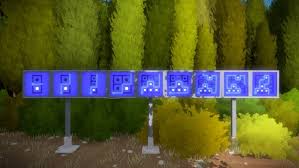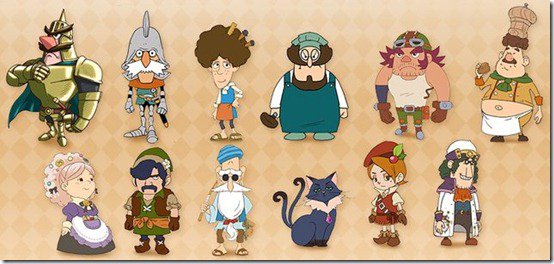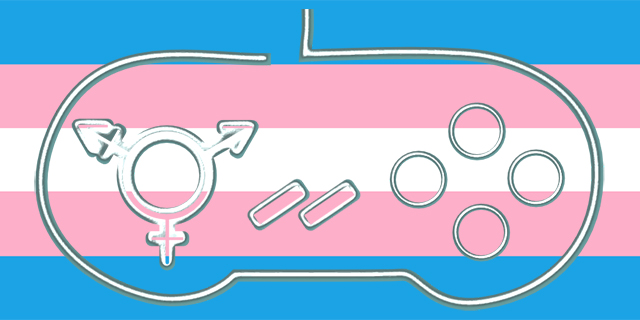One thing that critics like myself don’t do nearly enough is nod to just how difficult it is to be a game creator. Every game is flawed. Every game designer is flawed. It is easy to pick something out after a game is released and say you would have done something differently, made a better choice, etc. However, after teaching game writing, culture, and design classes for a few semesters now, and after watching students struggle through the creation process, and now that I’m going through the game creation process myself, I have come to realize a few things about the struggles designers go through. I think recognizing the limitations designers have, while still holding them accountable for certain things, can bring a fruitful relationship between critics, players, and designers.
First, sexism, racism, homophobia, transphobia, and the like are never acceptable. I don’t care if you had 20 minutes, 20 days, 20 months, or 20 years to make a game. Those –isms are not useful in any other entertainment or artistic medium, and they aren’t here either. You have time to think about the role women have in your game. If the designer claims they don’t, then what they’re really saying is that it wasn’t as important as the many other things that go into making a game. Games are beyond the infancy stage. Designers have no excuse for feigned ignorance about these issues. The player statistics don’t support the outdated notion that gamers are all white boys. The revenue streams don’t support it. There is no viable reason why your game would still be sexist, racist, etc. This is inexcusable under any circumstances.
Next, we come to the prickly issue of character creation. This one is tricky: designers should include as many types of “skins” and characters as humanly possible. We have talked numerous times on this site about the power of being able to see yourself on the screen as a player. But of course, this isn’t always feasible or reasonable. That said, a choice to make only male or female options in a game is just that: a choice. The designer is saying ‘we have X resources, and they are going towards making Y and Z, not B and C.’ And that happens. But that doesn’t mean designers shouldn’t be criticized for it. If designers make a choice, they have to own it. They would do that with a narrative twist people don’t like; they would do it with a release date; they need to do it with narrow and/or exclusionary choices as well.
Now, on the opposite end of the spectrum of choice, for me, is bugs and glitches. Most games these days have glitches, bugs, and other unintended issues within the game. Despite thousands of hours of playtesting, games don’t come out perfect. This is one issue that I don’t think gamers and critiques should be overly harsh about, in certain circumstances at least. Gamer culture can be incredibly vicious to game designers (just ask Phil Fish), and a lot of it is unwarranted. Yes, if you just paid $60 for a game on release day and you can’t get online to play because the servers are offline (*cough* EA *cough* Blizzard *cough*), then you get to be pissed. If a bug breaks your game, you get to be pissed. If lag or something makes the game unplayable, those devs have opened themselves up to criticism. However, today games are huge, massive systems. There is a reasonable expectation that there will be glitches, especially in games coming from smaller studios. Remember that these are human beings, probably not making millions of dollars, doing the best they can. Now maybe you can hold large studios to a higher standard, but indie folks need to be given some slack.
Studios, developers, and designers often have their own personas. I think we can hold them accountable for their public behavior. For example, Jonathan Blow has a unique persona that many call jerk-ish, though brilliant. Notch has a persona that many would call monstrous and horrible. Should we change our opinion of a game because of a developer’s persona? I don’t know. I know I am more likely to pick up a game for top dollar from Undead Labs because they have amazing people, listen to feedback, are cognizant of the cultural power of games, and are a smaller studio. I’m less likely to buy Notch’s next game because of his awful responses to very real problems with sexism in the gaming industry. Perhaps there is no getting around it, no separation of author and text, that is even possible today. What would it take for you to stop playing Minecraft? Letting your kids play Minecraft? What could Notch do that is awful enough for you not to touch his games again? It’s an interesting thought.
In all, I think our treatment of developers, studios, and designers has been fair on this site. I think many people on Twitter and online do not treat developers as people (or a collection of people, as it were), and that makes it harder for people who care about games to make them better. While I don’t think any topic of criticism should be completely out of bounds, I do think contextualizing certain kinds, as well as understanding that some things are never excusable, can help devs and designers keep an open mind to feedback.




